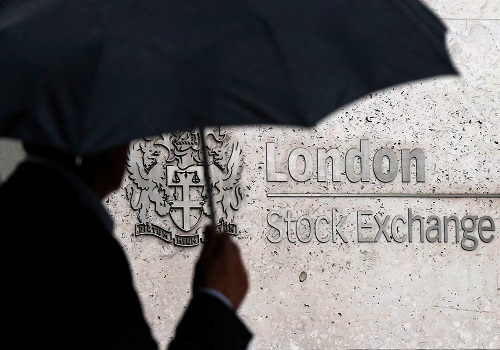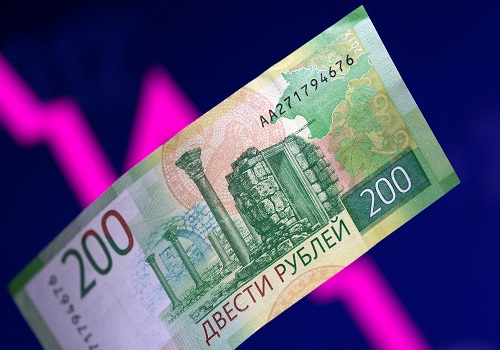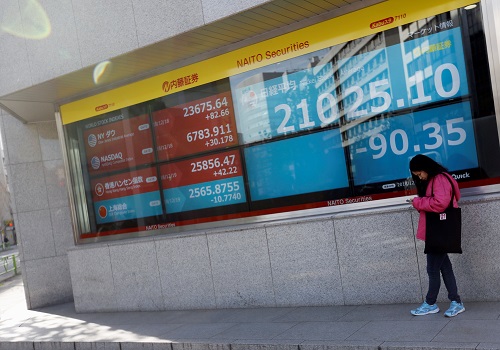Stocks rebound after selloff as Russia says withdrawing some troops

Follow us Now on Telegram ! Get daily 10 - 12 important updates on Business, Finance and Investment. Join our Telegram Channel
LONDON - Stocks and other risky assets made a modest recovery on Tuesday, halting a market selloff over several days on fears that Russia would invade Ukraine, as investors took confidence from Russia saying that some of its troops were returning to their bases.
After three consecutive days of declines, European shares opened slightly higher on Tuesday, after Russian Foreign Minister Sergei Lavrov suggested on Monday that Moscow should continue along the diplomatic path to resolve the tensions.
Stocks then jumped on news that Russia said some of its military units were returning to their bases after exercises near Ukraine.
The MSCI world equity index, which tracks shares in 50 countries, was up 0.3% on the day at 1203 GMT, its first gain after three days of drops, each exceeding 0.9%.
The STOXX 600 was up around 1.3% on the day. Wall Street was set for a stronger open, with S&P 500 futures up 1.5% and Nasdaq futures up 2.1%.
"We’re in the relief phase, I guess, from the Russia-Ukraine headlines but I still think some people will be cautious about that, not wanting to get caught short if there were further developments," said Peter McCallum, rates strategist at Mizuho.
The United States said on Sunday that Russia could invade Ukraine any time, a prospect that has prompted investors to sell riskier assets so far this week.
German Chancellor Olaf Scholz is due to meet Russian President Vladimir Putin as part of a frantic push by Western diplomats to try and stop a potential attack.
Gold - a safe-haven asset - fell 1% as European markets opened, after rising to an eight-month high during the Asian session.
Oil prices also fell down from the seven-year highs hit on Monday.
Investors also focused on the trajectories for major central banks to tighten monetary policy.
“Energy prices are still trending upwards and that makes it more difficult for central banks to move less hawkish, so we still think risk assets are under pressure going forward and yields should be going higher," said Mizuho's McCallum.
U.S. Federal Reserve officials are split over how aggressively to raise rates.
Markets are pricing in a 65.5% chance of a 50-basis-point hike and a 34.5% chance of a 25-bps hike at the U.S. central bank's March meeting.
The U.S. dollar index was down 0.2% on the day at 96.072, pulling back from the two-week high it hit on Monday.
The euro was up 0.3% at $1.13435 and riskier currencies such as the Australian dollar and British pound also strengthened.
UK employment fell in the October-to-December period while earnings fell by 0.8% in real terms, official data showed.
The U.S. 10-year Treasury yield broke back above 2%, while Germany's 10-year yield touched its highest since 2018 after signs of an easing of Russia-Ukraine tensions.












 320-x-100_uti_gold.jpg" alt="Advertisement">
320-x-100_uti_gold.jpg" alt="Advertisement">











